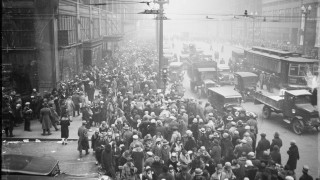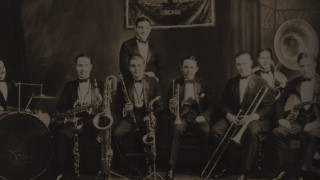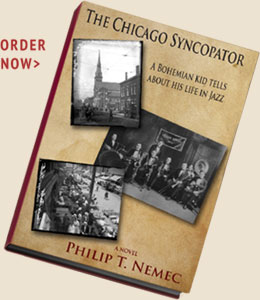 My novel, The Chicago Syncopator, is filled with Czech food specialties. Footnotes 18-20 detail not only different kinds of “Bohemian” bakery goods but also the way the Czech neighborhoods in Chicago began to modify the meanings of food names or even change the grammatical structure of a food word as life adjusted to the New World. While the residents were convinced they were eating the genuine article, the names began to slip away from what folks in the “Old Country” understood those food words to mean. That got me thinking about the whole immigrant experience with food and how each ethnic group that comes to America celebrates a tradition of delicacies from “back there,” but are those foods actually representative of what is or what was? Continue reading
My novel, The Chicago Syncopator, is filled with Czech food specialties. Footnotes 18-20 detail not only different kinds of “Bohemian” bakery goods but also the way the Czech neighborhoods in Chicago began to modify the meanings of food names or even change the grammatical structure of a food word as life adjusted to the New World. While the residents were convinced they were eating the genuine article, the names began to slip away from what folks in the “Old Country” understood those food words to mean. That got me thinking about the whole immigrant experience with food and how each ethnic group that comes to America celebrates a tradition of delicacies from “back there,” but are those foods actually representative of what is or what was? Continue reading
Bohemian Food – Footnotes 18-20
Cultural Myths
 Nations, cultures, cities, families, and people all create myths about themselves often to protect a collective psyche or an individual’s fragile ego from an uncomfortable truth. How else can violence and tribal hatred be explained except to cover it up with myth? I’ve never visited a country where the people don’t say things like, “We are a hospitable people. We love music. Our children are loved. We are tolerant.” The same people can just as easily turn into savages, and the veneer of good decorum splits away like cheap wood.
Nations, cultures, cities, families, and people all create myths about themselves often to protect a collective psyche or an individual’s fragile ego from an uncomfortable truth. How else can violence and tribal hatred be explained except to cover it up with myth? I’ve never visited a country where the people don’t say things like, “We are a hospitable people. We love music. Our children are loved. We are tolerant.” The same people can just as easily turn into savages, and the veneer of good decorum splits away like cheap wood.
In America, one of our myths has to do with immigration, and the Statue of Liberty stands right in the middle of it. “Our arms are open to those seeking freedom and opportunity” is how the myth goes. Don’t tell that to the Irish early in the Nineteenth Century. The Polish, the Italians, and others can attest to just how hard it is to start new in this land of opportunity. Tell that to families from El Salvador and Viet Nam in modern times. The unwritten part of the open arms story is that immigration is a tough Darwin-like survival experience. Some forget their own immediate needs and invest all in the next generation. Some prosper and others are chewed up and spit out. We even have a myth about that. “It makes us strong!” Even after the reality of the immigration experience was chronicled in our literature in works like Upton Sinclair’s The Jungle, Americans will not stop romanticizing it. Just enough people make it, like just enough people win the lottery that people will gamble their lives to try. After all, where the people have been can be so desperate that any long shot is worthwhile. Continue reading



